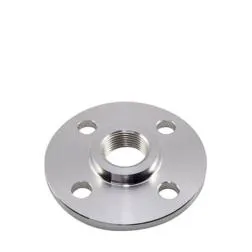-
Cangzhou Yulong Steel Co., Ltd.
-
Phone:
+86 13303177267 -
Email:
admin@ylsteelfittings.com

Sep . 08, 2024 22:03 Back to list
using galvanized pipe for gas
Using Galvanized Pipe for Gas Benefits and Considerations
When it comes to gas piping, selecting the right material is crucial for safety, durability, and efficiency. Galvanized pipes, commonly known for their use in water supply lines and structural applications, have also been considered for gas transportation. Understanding the advantages and potential drawbacks of using galvanized pipes for gas can help in making informed decisions for residential and commercial installations.
What is Galvanized Pipe?
Galvanized pipe is made of steel that has been coated with a layer of zinc to prevent corrosion. This protective layer ensures that the pipe can withstand moisture and other environmental factors, making it suitable for various applications. The use of galvanized pipes for gas lines primarily stems from their strength and durability compared to plastic alternatives.
Benefits of Using Galvanized Pipe for Gas
1. Corrosion Resistance Galvanized pipes are resistant to rust and corrosion due to the zinc coating. This is particularly beneficial in areas with high humidity or where the soil is acidic, as it can prolong the lifespan of the gas piping system.
2. Strength and Durability Galvanized pipes have a higher tensile strength than many other piping options. This strength makes them less susceptible to damage from impacts and environmental stressors, which is essential for maintaining the integrity of gas lines.
3. Fire Resistance Unlike plastic pipes, which can melt or become compromised under high heat, galvanized pipes are more fire-resistant. This characteristic can enhance safety in environments where there is a risk of gas leaks, as it helps maintain the integrity of the pipeline.
4. Cost-Effectiveness While galvanized pipes may be more expensive than some plastic options, their longevity and durability can lead to lower maintenance and replacement costs over time. This cost-effectiveness can be appealing for both homeowners and contractors.
using galvanized pipe for gas

Considerations Before Use
While galvanized pipes offer several advantages, there are also important considerations to keep in mind when using them for gas applications
1. Not Ideal for All Gas Types Galvanized pipes are typically suitable for natural gas systems. However, for specific applications, such as propane, other materials might be recommended. Always consult local building codes and regulations to ensure compliance.
2. Internal Coating Flaking Over time, the internal zinc coating can flake off, potentially leading to blockages or issues with gas flow. Regular maintenance and inspections will be necessary to mitigate this risk.
3. Installation Challenges Galvanized pipes can be heavier and more challenging to work with than some alternative materials. Proper tools and experience are essential for safe and accurate installation.
4. Potential for Reduced Gas Flow The interior of galvanized pipes can get rough over time, which may reduce the gas flow efficiency. It's important to evaluate this during installation to ensure adequate pressure and flow for appliances.
Conclusion
Using galvanized pipes for gas systems can offer valuable benefits, including corrosion resistance and strength. However, careful consideration of their limitations and regular maintenance is essential for ensuring safety and performance. As with any installation, consulting professionals and adhering to local regulations will lead to the best outcomes in gas piping applications.
Latest news
-
ANSI 150P SS304 SO FLANGE
NewsFeb.14,2025
-
ASTM A333GR6 STEEL PIPE
NewsJan.20,2025
-
ANSI B16.5 WELDING NECK FLANGE
NewsJan.15,2026
-
ANSI B16.5 SLIP-ON FLANGE
NewsApr.19,2024
-
DIN86044 PLATE FLANGE
NewsApr.19,2024
-
DIN2527 BLIND FLANGE
NewsApr.12,2024
-
JIS B2311 Butt-Welding Fittings LR/SR 45°/90° /180°Seamless/Weld
NewsApr.23,2024
-
DIN2605-2617 Butt-Welding Fittings LR/SR 45°/90°/180° Seamless/Weld
NewsApr.23,2024











